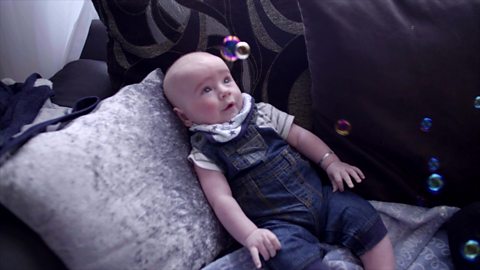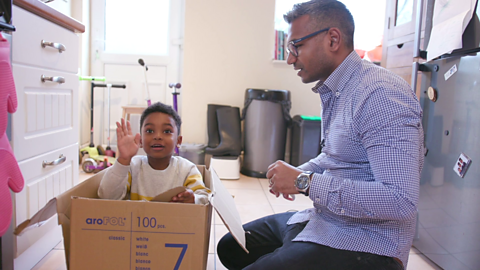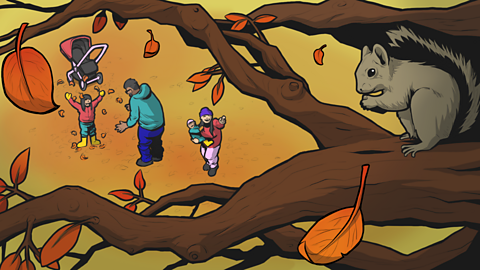Rainy days, long journeys, supermarket queues. About as tedious as life gets, right?
In fact, far from being from dull, they’re full of creative potential and can help build your little one’s life skills says Sandi Mann, author of The Science of Boredom and Senior Psychology Lecturer at the University of Central Lancashire.
She’s been researching boredom for around 20 years – and before you ask, no, she’s not bored of it – and believes we need to be less afraid of it.
“If I had one message for a parent it would be this: don’t be scared of boredom. Let it into your life and your child’s life too.”
Boredom has an image problem

Understanding exactly what boredom is can help you to see it in a more positive light.
“It’s an emotion and is basically a search for brain stimulation that isn’t met. So, if you’re searching for something to engage you, and you’re not satisfied, that frustration is labelled as boredom,” explains Sandi.
We experience it from the very start of our lives. “Babies are constantly looking for stimulation as they try to understand the world around them, which a really positive thing,” says Sandi.
And if we learn how to respond to boredom in a meaningful way, it can ignite our creativity. This means doing activities that don’t give an immediate and short hit of satisfaction, but something longer lasting.
“As a parent, you might feel afraid of boredom and worry that you’re not stimulating your child enough. But we need to allow them this downtime and encourage them to find inspiring ways to ‘unbore’ themselves,” says Sandi.


Is boredom good for kids?
So time you might think is tedious is loaded with potential benefits for your child’s development, if you use it in the right way.
“The main benefit is creativity – we want their minds to wander, we want them to daydream, come up with ideas, try things out, take the initiative and solve problems,” explains Sandi. “It leads to adventures, risk-taking and thinking outside of the box. It’s brilliant for their imagination. It will also help them in the future – if they have the tools to unbore themselves, they’ll be able to handle periods of downtime better as they get older.”
Embracing boredom isn’t just good for your little one’s development, it’s great for you too – and not simply because you’ll worry less about finding things for your child to do. Staying rooted in the moment, being resourceful and looking for inventive ways to satisfy your brain can help you feel calmer and more content. “You could see this during lockdown – it was like a giant research project into boredom and so much creativity emerged,” explains Sandi.


How to appreciate boredom and use it positively
“The great thing about embracing boredom is that you don’t really have to do very much,” says Sandi. “Don’t worry about structured activities or high-tech toys, and put any electronic devices to one side.”
So, Sandi’s first top tip is simple: give your little one the time to get bored. “Let them learn to cope with boredom and 'unbore' themselves and you will unleash a world of creativity.”
Provide some basic objects and let them take the lead. “Crafting items, things from the recycling like boxes and cardboard tubes, dressing up clothes, pots and pans are all great. These are the opposite of what I call ‘whizzy-whizzy-bang-bang’ toys. You want your child to create their own solutions,” says Sandi.
Suggest open-ended activities – so ones that don’t have a fixed outcome – like building an obstacle course or den – and let your child take the lead. “Being outdoors is absolutely great too. There is so much to experience; you and your kids can slow down and appreciate what’s around you.”
And finally, welcome boredom into your life too and be a role model, recommends Sandi. “It’s essential. If your child sees you responding to boredom creatively, they learn to welcome it too.”


What to do when your kids are bored
1. Get creative with recycling
Gather some junk, let your child decide what to make and talk you through their handiwork.
2. Do some window watching
Your window is a window of opportunity. See what grabs your little one's attention outside and ask them lots of questions.
3. Build a den
While they build their cosy corner, encourage your child to describe what they are doing and to use their imagination.
4. Make up games
Support your child to create a fantasy world and get fully immersed – a great activity for short walks.
5. Explore nature
The great outdoors has endless possibilities: go cloud spotting, listen for interesting sounds and make a nature collection in your garden or local park.







